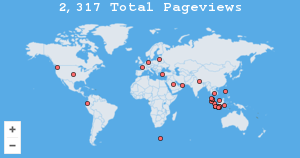Effectiveness of Google Forms for Final Exams at MTs Bustanul Ulum During the Pandemic
Keywords:
covid-19 pandemic, digital assessment, google forms, madrasah education, online examinationAbstract
This research aimed to develop a web-based examination system using Google Forms to facilitate the effective administration of the Final School Examination for Grade 9 students in Junior High Schools and Islamic Junior High Schools during the 2021–2022 academic year, particularly under remote learning conditions. The research followed a structured approach: designing exam questions in Google Forms, conducting requirements analysis, system design, and implementation. Student responses were recorded in Google Spreadsheets, enabling automatic grading and efficient result processing. The system was tested and applied in a real-world setting during the Computer-Based Madrasah Examination (UMBK) from April 9 to April 17, 2022, at MTs. Bustanul Ulum Yosowilangun, Lumajang. Exams were conducted in two daily sessions with strict health protocols. Evaluation showed the online examination system to be highly effective, offering substantial cost and time savings. While requiring digital infrastructure, Google Forms proved to be a reliable platform for conducting assessments, streamlining grading, and enhancing administrative efficiency. The study concludes that the transition from traditional paper-based exams to digital methods, driven by COVID-19 restrictions, was successful, with Google Forms demonstrating suitability for conducting large-scale online assessments.
References
Asad, M., Hussain, N., Wadho, M., Khand, Z., & Churi, P. (2021). Integration of E-Learning Technologies for Interactive Teaching and Learning Process: an Empirical Study on Higher Education Institutes of Pakistan. Journal of Applied Research in Higher Education Vol. 13 No. 3, 649-663.
Chara, J. J., Paucar, F. H., Alarcon, D. A., & Talavera–Mendoza, F. (2023). Training Needs of Teachers in the Acceptance and Use of WhatsApp in Online Teaching. International Journal of Information and Education Technology Volume 13 Number 11.
Cheng, L., Hampton, J., & Kumar, S. (2022). Engaging Students Via Synchronous Peer Feedback in A Technology-Enhanced Learning Environment. Journal of Research on Technology in Education, 56(3), 347–371.
Evans, R., & Cleghorn, A. (2022). Do student teachers see what learners see? – Avoiding instructional dissonance when designing worksheets. South African Journal of Childhood Education, 12(1).
Ferran, F. M. (2021). Extended Technology Acceptance Model to Examine the Use of Google Forms - based Lesson Playlist in Online Distance Learning. Recoletos Multidisciplinary Research Journal, 9(1), 147–161.
Flynn, N., Keane, E., Davitt, E., McCauley, V., Heinz, M., & Mac Ruairc, G. (2021). ‘Schooling at Home’ in Ireland during COVID-19’: Parents’ and Students’ Perspectives on Overall Impact, Continuity of Interest, and Impact on Learning. Irish Educational Studies, 40(2), 217–226.
Frommelt, M. C., Schiefele, U., & Lazarides, R. (2023). The Contributions of Teachers’ Educational Interest and Relational Goals to Instructional Quality and Student Interest in Mathematics Classrooms. Contemporary Educational Psychology, Volume 73.
Girdzijauskienė, R., Norvilienė, A., Šmitienė, G., & Rupšienė, L. (2022). Strengthening Student Engagement in Learning Through Use of Digital Tools. Acta Paedagogica Vilnensia, 49, 115–130.
Goh, H., Wong, H., & Kwek, D. (2023). Home-Based Learning During School Closure in Singapore: Perceptions from The Language Classrooms. Educ Res Policy Prac 22, 367–387.
Khan, R. A., & Jawaid, M. (2020). Technology Enhanced Assessment (TEA) in COVID 19 Pandemic. Pakistan Journal of Medical Sciences Vol. 36 No. COVID19-S4.
Makarenko, V., Aleksieieva, O., Fysiuk, A., Filimonova, T., & Tsypliak, N. (2024). Google’s Digital Tools for Education: A Selection of Tools. Journal of Curriculum and Teaching Vol 13 No 3.
Mane, D. T. (2020). Active Teaching Learning Methods for Improving Students Engagement in The Classroom. Journal of Engineering Education Transformations, Volume 33.
Martin, B. A. (2021). Teachers Perceptions of Google Classroom: Revealing Urgency for Teacher Professional Learning. Canadian Journal of Learning and Technology Vol. 47 No. 1.
Pascu, M., Petculescu, D. C., & Stupariu, I. P. (2023). Investigating Students’ Perception of Online Assessment as a Result of the Interaction among the Extrinsic Assessment Factors on Students Psychological Characteristics. Education Sciences, 13(2).
Pradana, M., & Syarifuddin, S. (2021). The Struggle Is Real: Constraints of Online Education in Indonesia During the COVID-19 Pandemic. Frontiers in Education Volume 6.
Prasetyo, Y. E., Surtiari, G. A., & Nawawi. (2023). Unlocking The Interaction of Social Restriction and Social Protection in Indonesia’s Covid-19 Policy: Future Risk and Adaptation. Journal of Integrative Environmental Sciences, 20(1).
Toma, F., Ardelean, A., Grădinaru, C., Nedelea, A., & Diaconu, D. C. (2023). Effects of ICT Integration in Teaching Using Learning Activities. Sustainability, 15(8).
Wahab, R. A., Ismail, S., & Cusairi, R. M. (2023). Implementation and Challenges of Home-Based Teaching and Learning (PdPR) in Religious Schools in Kubang Pasu, Kedah. World Journal of English Language Vol.13 No.6.
Downloads
Published
Issue
Section
License
Copyright (c) 2025 Ainur Rohmah, Muhammad Aqil Syafikri, Henny Wahyu Sulistyo, Wiwik Suharso, Moh. Dasuki, Amalina Maryam Zakiyyah (Author)

This work is licensed under a Creative Commons Attribution 4.0 International License.
Authors retain copyright and grant the journal right of first publication with the work simultaneously licensed under a Creative Commons Attribution 4.0 International License that allows others to share the work with an acknowledgement of the work's authorship and initial publication in this journal.




